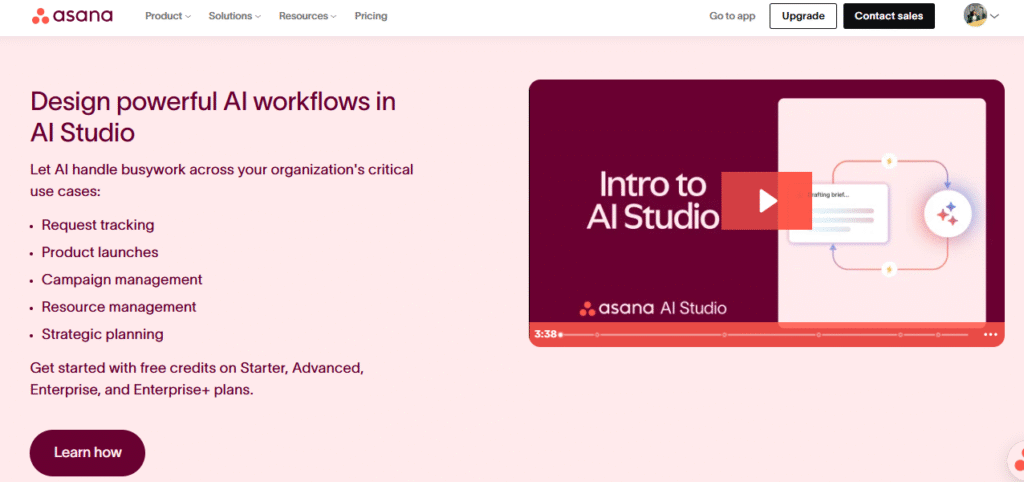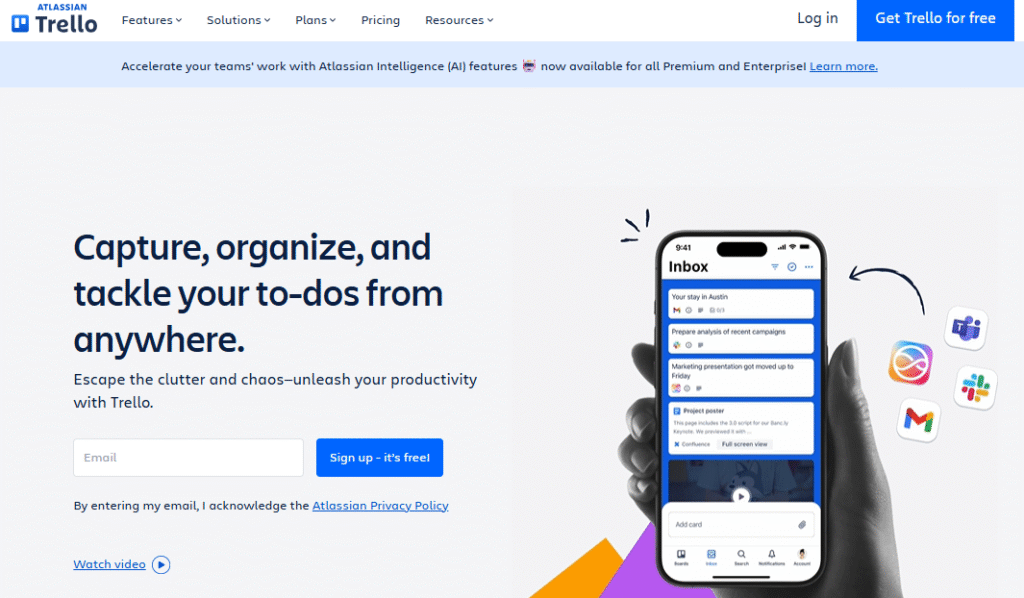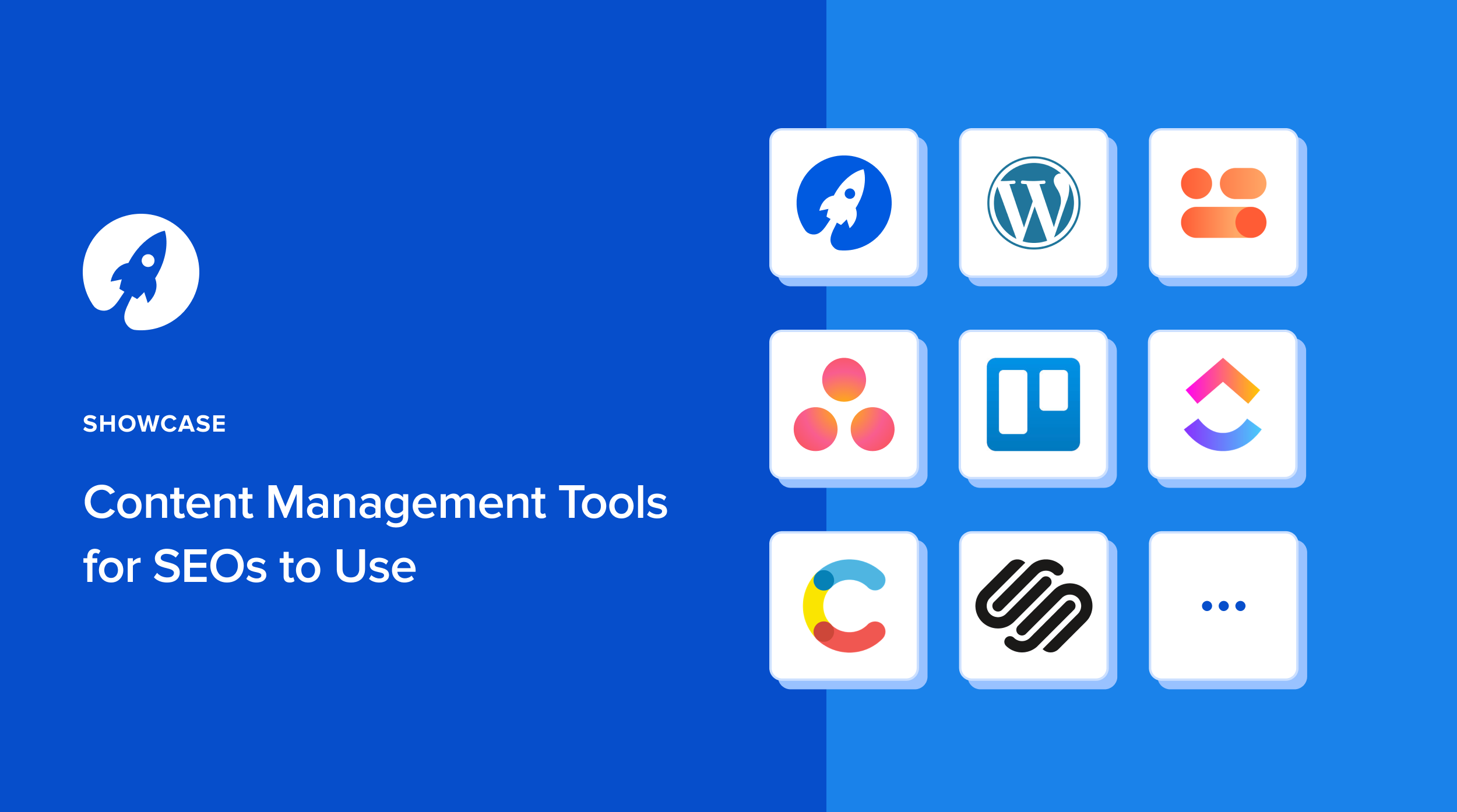As an SEO strategist involved in content management for years, I’ve tested many content management tools to streamline my workflow.
From my early days of juggling spreadsheets to now, where CMS platforms rule the roost, the evolution has been remarkable.
Now, more and more content management tools are tailored specifically for SEO professionals.
If you’re like me and constantly looking for tools that simplify your processes and boost your search rankings, you’re in the right place.
In this guide, I’ll discuss the 10 best content management software for 2024.
But first, let’s start by understanding what content management is and why it is important.
What is Content Management?
Content management is the process of creating, editing, organizing, and publishing various types of digital content, such as website pages, blog posts, videos, images, and more.
It includes the entire lifecycle of content, from ideation to distribution, ensuring a seamless and consistent experience for your target audience.
A content management software system stores all this information for effective execution.
3 Benefits of Using Content Management Tools
Digital asset management can be effective if you use the right tools.
Here are the three ways it has benefitted me throughout my career:
1. Simplifies Content Creation
One of the primary advantages of content management tools is their ability to streamline the content creation process.
With user-friendly interfaces and intuitive features, these tools help me create, edit, and publish content effortlessly without requiring extensive technical knowledge or coding skills.
I’ve found that this accessibility empowers individual freelancers and teams to focus on crafting compelling content rather than struggling with complex technicalities.
2. Streamlines Team Collaboration
When it comes to team collaboration, a good web content management system ensures smooth collaboration among multiple team members, each with unique expertise.
Content management tools facilitate seamless collaboration by providing features such as version control, role-based permissions, and real-time editing capabilities.
This ensures everyone can work together efficiently, minimizing the risk of conflicts or accidental overrides.
3. Ensures Consistent SEO Results
SEO is arguably the most important component of any successful online strategy.
Content management tools often incorporate SEO-friendly features, such as metadata optimization, keyword analysis, and sitemap generation, to enhance your website’s visibility and search engine rankings.
Using these tools ensures that your content is optimized for search engines, driving more organic traffic and improving your overall online presence.
10 Content Management Tools
With these benefits in mind, let’s explore the top 10 content management tools that SEOs should consider using in 2024.
1. SEOBoost

SEOBoost is an AI-driven content management platform designed to streamline content optimization and management.
SEOBoost is an excellent choice for businesses and individuals seeking a comprehensive content optimization solution. Its AI-powered capabilities and robust competitor analysis and reporting features make it ideal for enhancing SEO efforts and staying ahead of the competition.
Its content management feature offers an intuitive interface that simplifies tracking various campaigns and their assets for you and your team.
Winning Features
SEOBoost uses advanced artificial intelligence (AI) algorithms to analyze your content and provide actionable recommendations for improving its on-page SEO performance.
This includes comprehensive content optimization and keyword, meta description, heading, and other element suggestions.
It helps you analyze your competitors’ top-performing pages and backlink profiles. It helps with keyword research, providing valuable insights into their content strategies and helping them excel in off-page SEO.
Generates comprehensive content audit reports tailored to your specific needs. This allows you to track your SEO progress and identify areas for improvement.
2. WordPress

WordPress offers a vast library of plugins, including numerous SEO-focused options, allowing you to customize and optimize your website according to your needs.
WordPress is an excellent choice for individuals, small businesses, and content creators seeking a flexible, user-friendly content management tool. Its extensive plugin ecosystem and responsive design capabilities make it a versatile option for building and optimizing websites for search engines.
With its intuitive interface and easy-to-use content editor, WordPress empowers users of all skill levels to create and manage their websites effortlessly.
WordPress themes are designed to be mobile-responsive, ensuring that your website looks and functions seamlessly across various devices, which is crucial for SEO.
3. HubSpot CMS Hub

HubSpot helps you create a website for your business to attract more visitors, generate leads, and boost your revenue.
HubSpot CMS Hub is an excellent choice for businesses seeking an all-in-one content management and marketing solution. Its integrated suite of tools, SEO optimization capabilities, and content personalization features make it a powerful option for companies looking to enhance their online presence and drive more qualified leads.
HubSpot CRM is part of a comprehensive marketing platform that allows you to seamlessly manage your website, blog, and marketing campaigns from a single interface.
HubSpot CMS Hub offers built-in SEO tools, including keyword research, on-page optimization recommendations, and performance tracking.
Deliver personalized content experiences to your visitors based on their behavior, location, and preferences, improving engagement and conversion rates.
4. Asana

Asana is one of my favorite project and content management tools to help teams organize, track, and manage their work seamlessly.
Asana is ideal for teams and organizations seeking to enhance their content management processes through effective project management and collaboration. Its seamless integration with various content management systems makes it valuable to your content creation toolkit.
It streamlines workflows and enhances team productivity with features like task assignments, project timelines, and collaborative workspaces.
In fact, we use Asana for project management at SEOBoost. It helps me prioritize tasks, set deadlines, and monitor progress effectively.
Using Asana, you can easily assign tasks, set deadlines, and track progress, ensuring your content creation workflow remains organized and efficient.
What I like the most is that it facilitates seamless collaboration among team members, enabling real-time communication, file sharing, and feedback loops.
5. Trello

Trello is also one of my favorite and most versatile content management tools.
It uses a card-based system to help teams organize and track their projects. Its visual boards, lists, and cards make it easy to manage tasks, set priorities, and collaborate in real-time.
Trello is an excellent choice for teams and individuals who prefer a visual and flexible approach to content management. Its intuitive Kanban-style boards, customization options, and integrations make it a versatile tool for managing content creation workflows.
Trello’s drag-and-drop interface and customizable features allow teams to adapt the tool to their specific workflow, making project tracking intuitive and straightforward. Its Kanban-style boards visually represent your content creation workflow, making it easy to track progress and identify bottlenecks.
You can also customize your Trello boards with various lists, labels, and automation features to align with your specific content management processes.
6. ClickUp

ClickUp is an all-in-one project management tool that enhances team productivity and streamlines workflows.
It offers a wide range of features, including task management, goal tracking, and project timelines, all within a customizable interface.
ClickUp is an excellent choice for teams and individuals seeking a comprehensive and customizable content management solution. Its centralized content hub, custom views, and automation capabilities make it a versatile tool for streamlining content creation workflows and enhancing productivity.
What I love most about ClickUp is its flexibility, which lets teams tailor the platform to their needs, whether managing complex projects or simple tasks.
ClickUp offers a variety of custom views, including Calendars, Gantt Charts, and Kanban Boards, catering to different content management preferences and workflows.
It streamlines your content creation processes with ClickUp’s powerful automation features and seamless integrations with various content management systems and productivity tools.
7. Contentful

Contentful is one of the most widely used and trusted content management tools to help businesses create, manage, and deliver digital content across various platforms.
It offers a flexible, API-first approach for seamless integration with other tools and technologies. Contentful’s intuitive interface and modeling capabilities enable teams to organize and structure content efficiently, ensuring a consistent and personalized user experience.
Contentful is an excellent choice for businesses and organizations looking for a flexible and scalable content management solution. Its headless architecture, content modeling capabilities, and collaborative editing features make it a powerful tool for managing and delivering content across multiple channels and devices.
Contentful’s headless architecture separates content creation from delivery, enabling you to publish content seamlessly across multiple channels and devices.
It lets you define custom models, ensuring your content is structured and organized to your needs.
I also like how it supports real-time collaborative editing, enabling multiple team members to work on content simultaneously, streamlining the content creation process.
8. Squarespace

Squarespace is known for its sleek, user-friendly design and robust features. It provides an array of customizable templates and an intuitive drag-and-drop interface, making it easy for users to create visually stunning websites without needing coding skills.
Squarespace is ideal for individuals, small businesses, and creative professionals seeking a visually appealing, user-friendly content management tool. Its stunning templates, drag-and-drop editor, and built-in e-commerce capabilities make it a versatile option for creating and managing websites and online stores.
Squarespace offers a wide range of professionally designed and visually appealing templates, ensuring your website looks polished and engaging.
Its intuitive drag-and-drop editor lets you easily customize your website’s layout and content without coding and provides built-in e-commerce functionality, making it an excellent choice for businesses selling products or services online.
9. Sitecore

Sitecore is a powerful digital experience platform that combines content management, personalization, and digital marketing into a single solution.
It offers advanced capabilities for managing complex websites and delivering personalized content across various channels.
Sitecore is an excellent choice for large enterprises and organizations seeking a robust and scalable content management solution. Its omnichannel experience management capabilities, advanced personalization features, and scalability make it a powerful tool for managing and delivering personalized content experiences across multiple channels.
Its personalization capabilities enable you to tailor content based on user behavior, preferences, and contextual data, improving engagement and conversion rates.
What I like most about Sitecore is that it is designed to handle high-traffic websites and complex content management requirements, making it a suitable choice for large enterprises and organizations.
10. Magento

Magento is a leading open-source e-commerce platform renowned for its flexibility and scalability.
It offers a comprehensive suite of tools for managing online stores, including product catalogs, order processing, and payment integration.
Magento is an ideal choice for e-commerce businesses of all sizes, from small online stores to large enterprises. Its robust e-commerce functionality, customization options, and scalability make it a powerful platform for managing and growing online sales.
Magento’s modular architecture and extensive extension marketplace enable high levels of customization, allowing businesses to tailor the platform to their specific needs.
It is designed to handle high-traffic volumes and extensive product catalogs, making it suitable for growing e-commerce businesses.
Key Takeaway
Choosing the right content management tool is important for optimizing your online presence and achieving your SEO goals.
Each tool I’ve discussed in this article offers unique features and capabilities tailored to different needs and preferences.
Just make sure you consider your business size, content creation workflow, team collaboration requirements, and specific SEO needs when selecting a content management tool.
Remember, aligning your choice with your unique requirements can streamline your content creation processes, enhance team collaboration, and improve your website’s search engine visibility and overall online performance.
FAQs about Content Management Tools
1. What is a content management system (CMS)?
A content management system (CMS) is a software application that allows users to create, manage, and publish digital content on websites or other platforms. It provides a user-friendly interface for managing content without requiring extensive technical knowledge or coding skills.
2. Why is a CMS important for SEO?
A CMS is essential for SEO because it enables you to create and optimize content for search engines. Many CMS platforms offer built-in SEO features, such as metadata optimization, sitemaps generation, and integration with various SEO tools, which can significantly improve your website’s visibility and rankings in search engine results.
3. Can I use a CMS for managing content across multiple channels?
Many modern CMS platforms, particularly headless CMS solutions, are designed to manage and deliver content across multiple channels and devices, including websites, mobile apps, and social media platforms. This omnichannel approach ensures a consistent and seamless content experience for your audience, regardless of their platform.
4. How do I choose the right CMS for my business?
When choosing a CMS, consider your business size, content creation workflow, team collaboration requirements, and specific SEO needs. Evaluate the features, pricing, and scalability of different CMS platforms to find the one that best aligns with your requirements.




